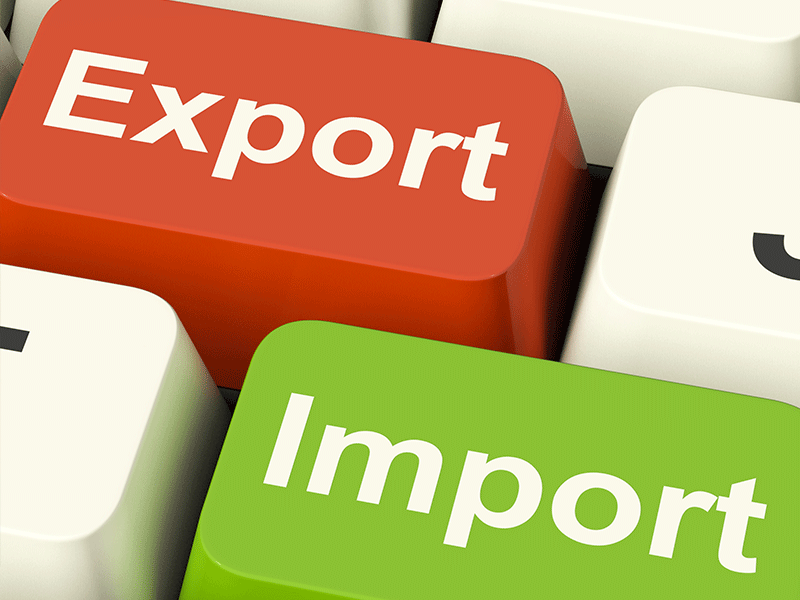Company Training Programs
Our founders built the OCEANAIR brand on the foundation of educating the business community about global trade and we have not forgotten our roots today. By working in conjunction with our customer, we enlist a proactive compliance methodology. This process uncovers areas which may need some fine tuning. For some clients, this may require basic training for importers to foster the right discussions. In this scenario, the client would complete B-KIP questionnaire. Their responses help OCEANAIR understand the business and learn more about the client. In other instances, training helps our customers to understand the responsibilities of Customers, Brokers, Exporters, and Importers.

Trainings Available
We offer also export training programs to customers to help them create and implement their own ECMS. Continued customer support provides clients with seminars on INCOTERMS, carnets, and Export Valuation. We provide compliance services and training covering, any subject a client wants to learn about as needed and requested, such as General Export Awareness, Export Licensing, ECCN Determination, the SNAP-R process for licensing and Commodity Classification requests, and Anti-Boycott awareness training.
Below are some of the trainings we provide.
This full day seminar is to cover topics based around the transportation of ocean and air freight. Agenda items will include: Preparation Before Shipping, Regulatory Process, Documentation, Quotes, Incoterms, Ocean and Air Freight Terminology, Transit Times, Transportation Liability, Recordkeeping, Terms of Payment
This full day seminar covers topics based around the transportation of ocean and air freight and U.S. Customs brokerage. Agenda items will include: Preparation Before Shipping, Regulatory Process, Documentation, Quotes, Incoterms, Ocean and Air Freight Terminology, Transit Times, Transportation Liability, Recordkeeping, The Consumption Entry, The Entry Process, Customs Bonds, Powers of Attorney, Bindings Rulings
This is an entry program into basic Export Regulatory Compliance. In today’s complex political environment, compliance with export control regulations is critical. The U.S. government is focusing more attention on the enforcement of export control regulations and penalties for violating these rules are on the rise. Your export compliance program must integrate your company’s global operations because the U.S. government’s regulatory reach extends beyond U.S. borders. Can your company afford not to establish and maintain a comprehensive compliance program?
This full day seminar provides information on the basic issues one needs to know and understand for importing into the United States. The issues that will be covered in this seminar are classification, valuation, record keeping, marking, and admissibility. This seminar will provide an in-depth analysis of the above issues. In addition, there will be discussions on the applications of the various free trade agreements and their effect on the importing process
This half day seminar includes understanding the Sales Contract, and how it relates to the Letter of Credit, in-depth review of INCOTERMS, documentation, quotes, terminology, and areas of concern also covering all the parties involved in the Letter of Credit process. The seminar will conclude with a workshop, actually being presented with Letters of Credit and walking through the process noting inherent discrepancies, dates, and timelines. All different types and uses of Letters of Credit will be reviewed.
This full day seminar explores the complex rules of classification of imported merchandise in order to arrive at a rate of duty. The same analysis can be used for export classification for census purposes. This seminar will provide insight into the importance of proper valuation and classification when importing into the United States. The seminar will review the various methods of valuation and numerous pitfalls importers face.
This half day workshop provides a detailed look at the step-by-step process for determining the Export Control Classification Number (ECCN) of your item. Knowing your ECCN is the key to determining the license requirements for your item. Technical specialists from BIS will discuss the important steps to a successful item classification, beginning with whether an item is subject to the EAR, the structure of the Commerce Control List (CCL), and how to use the alphabetic and numerical indexes to help narrow your focus during the search for your ECCN. We will walk through examples of this procedure to help you avoid pitfalls that may lead to inaccurate classifications
If there are problems or delays with a shipment, the source is normally with the documentation and/or valuation. The majority of export paperwork is not filled out as accurately as possible. Valuation is considered to be a moving target. How do you value repairs, replacements or warranties? How can you set up internal processes to ensure that you have performed “due diligence” and “reasonable care” when preparing documentation and valuing shipments? What elements are critical to note on commercial invoices? How does that information relate to the Automated Export System (AES)? What are the fines and penalties for filling out these documents incorrectly?

